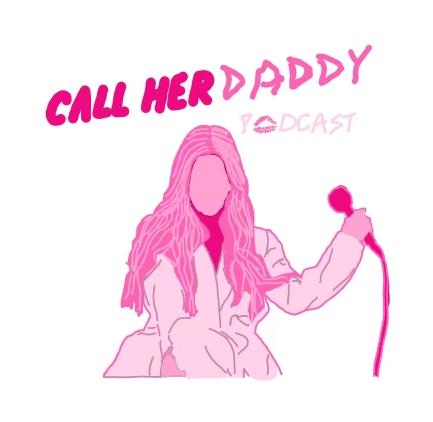Do you call him daddy? Do I call her daddy? Call. Her. Daddy.
I can still remember the illicit feelings of shame that consumed the thirteen-year-old version of myself who secretly listened to “Call Her Daddy.” Holding my phone up to my ear so that no one could hear, I listened as Alex Cooper bellowed away her most raw and unvarnished female advice with fearless sexual prowess.
Alex Cooper is best known as the host of “Call Her Daddy,” the original Barstool Sports podcast that took off in 2018. Immediately after the first episode aired, where Cooper discussed the perfect adjective to use while sexting, “Call Her Daddy” became a smashing success. As the host and producer of the podcast, Cooper quickly became one of the country’s most popular podcasters, developing a following of millions of predominantly women listeners ages 18 to 33, formally known as the “Daddy Gang.” In 2021, 26-year-old Cooper landed a $60 million three-year deal to take the podcast to Spotify.
During her transition to Spotify, “Call Her Daddy,” shifted from a primarily sex podcast to also focus on guest speakers and celebrity perspectives. Cooper recently released her new venture, The Unwell Network, a media outlet aimed at providing Generation Z with pop culture and lifestyle content. “Call Her Daddy” now stands as a platform for conversations with guests on the show to talk about sexual experiences that are different from her own as a straight, white, cisgender woman. Cooper talks a lot about female empowerment, which has always been an undercurrent of the show, even if salacious stories are no longer what draws people in.
When “Call Her Daddy” started, Cooper and former co-host Sofia Franklyn garnered immediate attention for their sexual explicitness and candid story-telling nature. The “About” section on the “Call Her Daddy” Spotify page describes the podcast as “putting a modern twist on feminism” and “spitting in the face of misogyny.”
From periods to pleasure, few topics are as taboo as female sexuality. Though women are educated on sex from a biological perspective, they are traditionally not taught that they too are allowed to enjoy sex without feelings of embarrassment and shame. Pleasure is neither foolish nor improper, and yet, women are drowning in shame as they desperately struggle to muster the courage to explore. The double standard between men’s and women’s sexuality remains persistent; there are many things that men can talk about, but when women talk about them, it becomes socially unacceptable.
I was never taught to talk with my girlfriends about the messy, uncomfortable, taboo parts of growing up, and when women around lack this willingness to face discomfort, shame is perpetuated. This silence surrounding the uncomfortable left me feeling uninformed and unprepared, especially when it came to understanding the more nuanced aspects of sexuality and relationships.
But listening to other women talk freely about sexuality is what helped me stay afloat. On “Call Her Daddy,” Cooper speaks unabashedly about her sex life, in a way that is praised and celebrated and makes me realize that I too am allowed to talk about sex.
On “Call Her Daddy,” Cooper executes a women’s version of “locker-room talk,” where women are comfortable with getting personal. Cooper wants to own locker-room talk—and do it better—as a form of reclamation. And she does it in a way where women and girls feel personally connected to both her and one another.
Most importantly, Alex Cooper has shown that silly, raunchy girl topics, like her specialized oral sex technique, which she famously referred to as the “Gluck Gluck 9000,” can be a multimillion-dollar media empire that is taken seriously by traditional media, which then destigmatizes these topics.
Beyond her more amusing anecdotes, Cooper frames female sexuality as a serious, important part of women’s physical and mental health, empowering her followers and giving them advice in a way that is not necessarily outrageous but instead more sincere. Through discussing sex and relationships in a humorous, relatable way, “Call Her Daddy” showed that these topics are fair game for women to own and discuss publicly.
“Call Her Daddy” is all about embodying confidence in yourself and starting taboo conversations. Cooper is unapologetically and fearlessly feminine as she tackles sex, relationships, and even masturbation, with confidence and wit.
This component of womanhood is new, and it is evolving. It might seem simple, but as women, we are taught to procure the validation of men, even when it is at the expense of our confidence and dignity. The deep shame women have been subconsciously conditioned to feel surrounding sexual intercourse has become so inherently woven into the fabric of our beings.
But what Alex Cooper and other women like her are doing is allowing women to make their own definition for the word sex. So, revel in your discomfort, and expand your ideas—of both yourself and of the world we can inhabit.
Rania Jones ’27 (rjones@college.harvard.edu) once accidentally played Call Her Daddy in the car with her dad.

